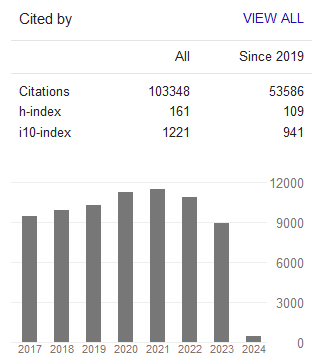Determinants of New Small and Medium Enterprises (SMEs) Access to Bank Credit: Case Study in the Phu Tho Province, Vietnam
- Hung Pham
Abstract
Small and medium-sized enterprises (SMEs) play a very important role in the Vietnamese economy. Specifically, new SMEs are seen as a suitable solution to cope with development issues such as poverty and a high unemployment rate. In Vietnam, a high SME failure rate is due to lack of capital and poor managerial experience of owners. Most existing research on SMEs focuses on well-established stages, and less attention is paid to new SMEs. This paper investigates the determinants of credit access by SMEs existing for less than forty-two months in the Phu Tho province located in Northern Vietnam. The quantitative data were collected from 259 SMEs in 2015. The regression analysis reveals that a business plan, the firm size, and networking (emotional trust, knowledge trust, and approachability) are the main drivers of access to bank loans by new SMEs. About 64% (165 observations) of new SMEs in our sample did not get any bank loan caused by high collateral requirements, unfavorable interest rate, poor business plans, limited networking, and lack of government support. The results also indicate that, among the selected explanatory variables, having a concrete business plan significantly affects the bank loan ratio (total bank loans over total capital). Based on these results, we derived political implications.
- Full Text:
 PDF
PDF
- DOI:10.5539/ijbm.v12n7p83
Journal Metrics
Google-based Impact Factor (2023): 0.86
h-index(2023): 152
i10-index(2023): 1168

Index
- Academic Journals Database
- AIDEA list (Italian Academy of Business Administration)
- ANVUR (Italian National Agency for the Evaluation of Universities and Research Institutes)
- Berkeley Library
- CNKI Scholar
- COPAC
- EBSCOhost
- Electronic Journals Library
- Elektronische Zeitschriftenbibliothek (EZB)
- EuroPub Database
- Excellence in Research for Australia (ERA)
- Genamics JournalSeek
- GETIT@YALE (Yale University Library)
- IBZ Online
- JournalTOCs
- Library and Archives Canada
- LOCKSS
- MIAR
- National Library of Australia
- Norwegian Centre for Research Data (NSD)
- PKP Open Archives Harvester
- Publons
- Qualis/CAPES
- RePEc
- ROAD
- Scilit
- SHERPA/RoMEO
- Standard Periodical Directory
- Universe Digital Library
- UoS Library
- WorldCat
- ZBW-German National Library of Economics
Contact
- Stephen LeeEditorial Assistant
- ijbm@ccsenet.org
